Global Variables Quick Start Guide
Get up and running with global variables in 5-10 minutes!
Global variables are your secret weapon for creating consistent, reusable content across all your prompts. Instead of typing your investment details, personal information, or preferences repeatedly, define them once and use them everywhere.
What Are Global Variables?
Global variables are values you define once and can use in any prompt using the syntax {{global.variable_name}}. Think of them as your personal content library that travels with you across all projects.
Perfect for:
- Investment preferences (favorite stock, risk tolerance, investment goals)
- Personal information (name, role, expertise)
- Research focus (sectors, time horizons, analysis style)
- Trading preferences (strategy, market outlook, position sizes)
Step 1: Navigate to the Variables Page
Go to PromptEverything and click on "Variables" in the main navigation, or visit directly: https://prompteverything.com/variables
You'll see the Global Variables workspace with:
- Header: "Global Variables"
- Description: "Define variables to reuse across all your prompts"
- "Add Variable" button in the top right
- Empty state showing "No variables yet" with example usage
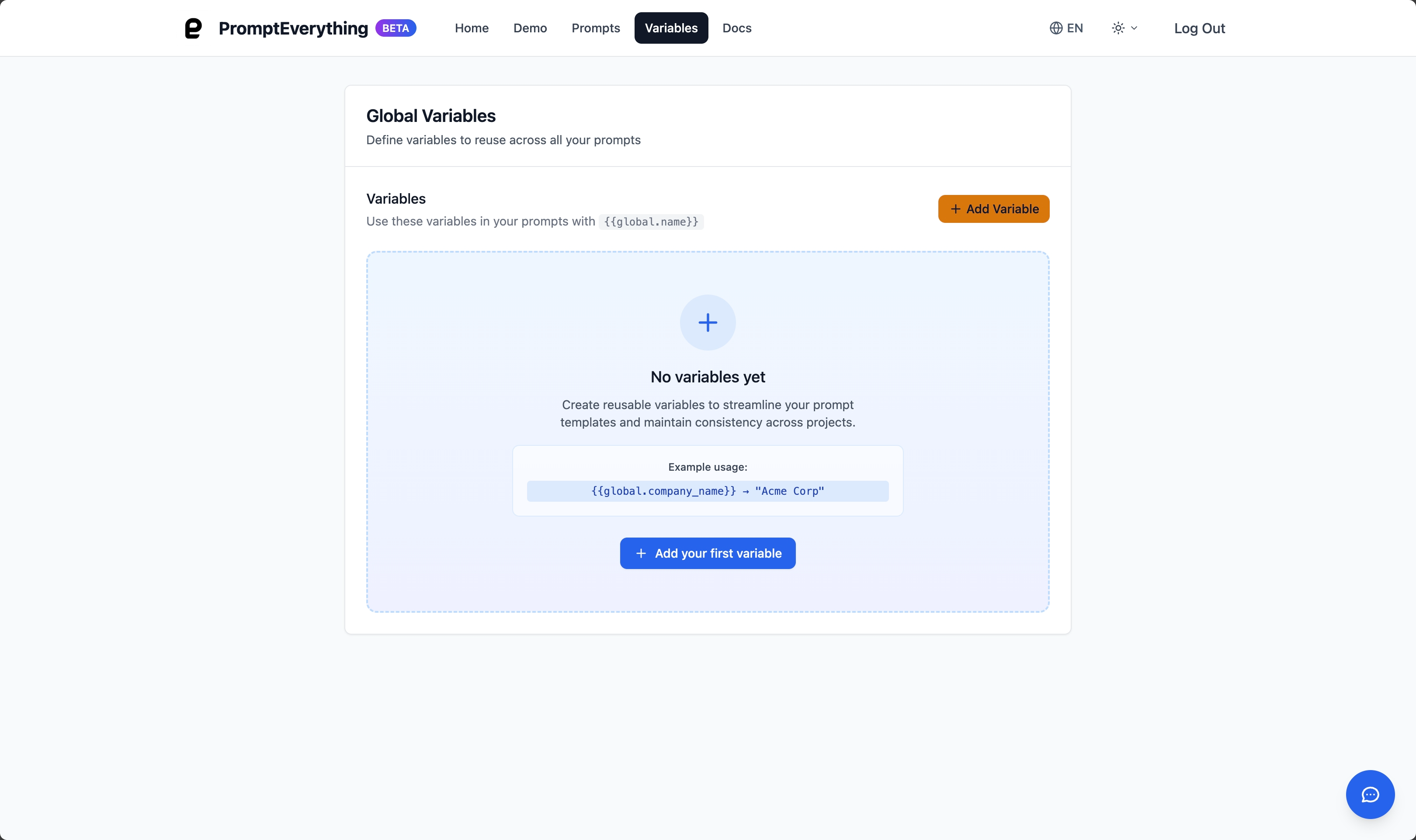
Step 2: Create Your First Global Variable
- Click "Add Variable" or the "Add your first variable" button
- Variable creation form appears with:
- Text input field with placeholder "variable_name"
- "Add" button to confirm
- Cancel option (X button)
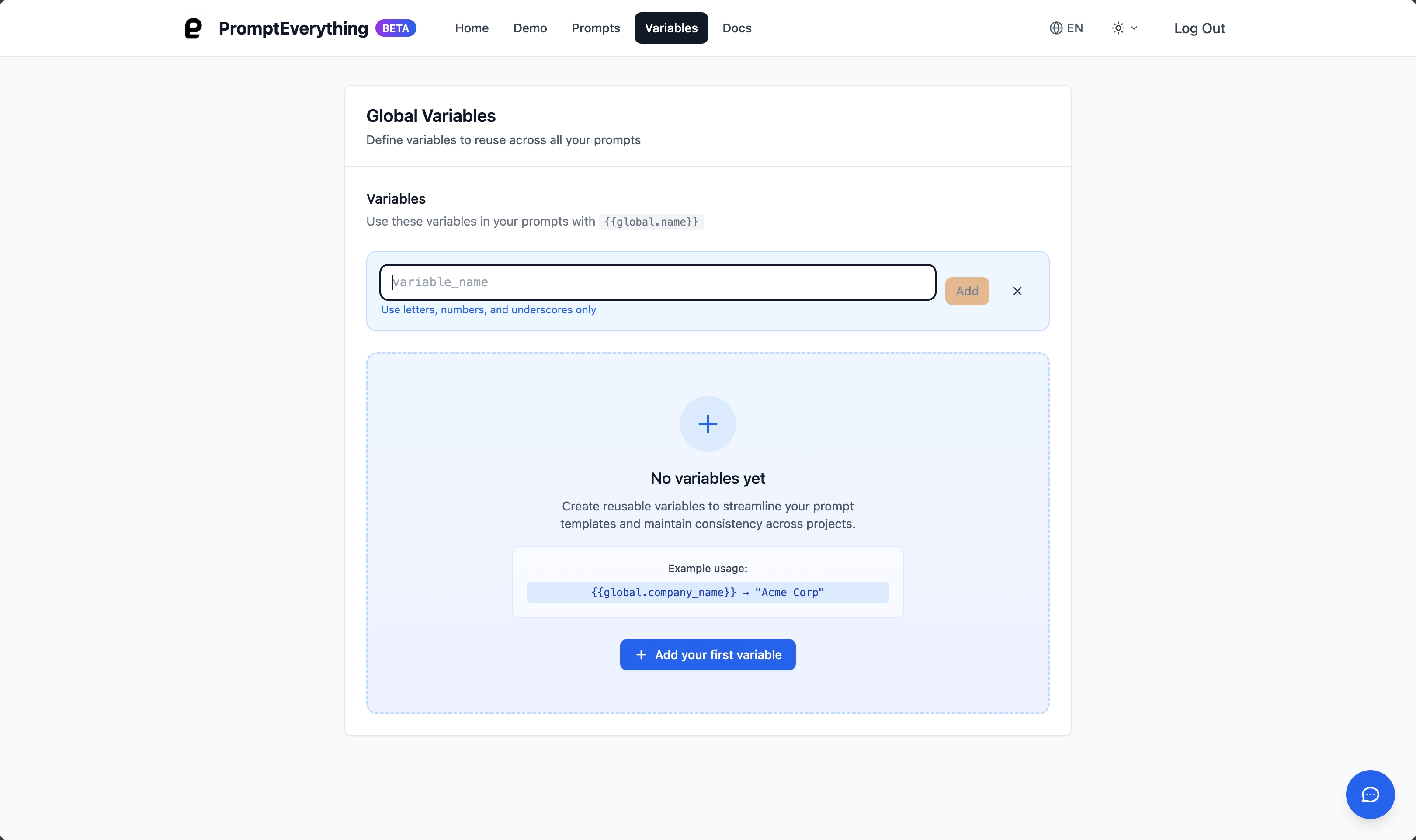
Step 3: Name Your Variable
Choose descriptive names that you'll remember across different prompts:
- Good examples:
favorite_stock,investment_strategy,risk_tolerance,portfolio_focus - Avoid:
stock,x,temp,thing
Type your variable name and press Enter or click "Add"
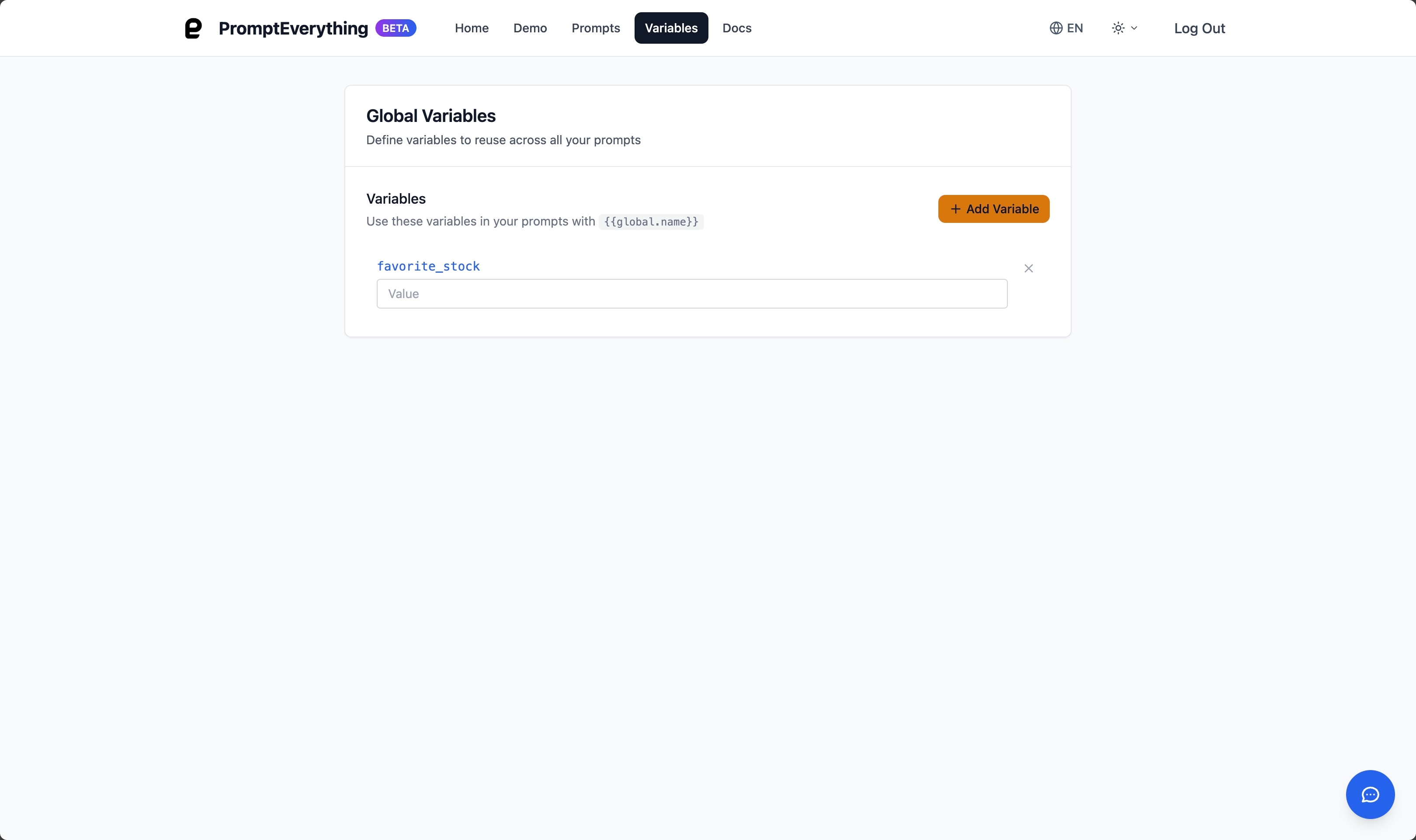
Step 4: Set Variable Values
Once created, you'll see your variable in the list with:
- Variable name on the left (e.g.,
favorite_stock) - Value input field on the right
- Remove button (trash icon)
Fill in the value for your variable:
- Click in the value field
- Type your content (can be single words or multiple sentences)
- Changes save automatically
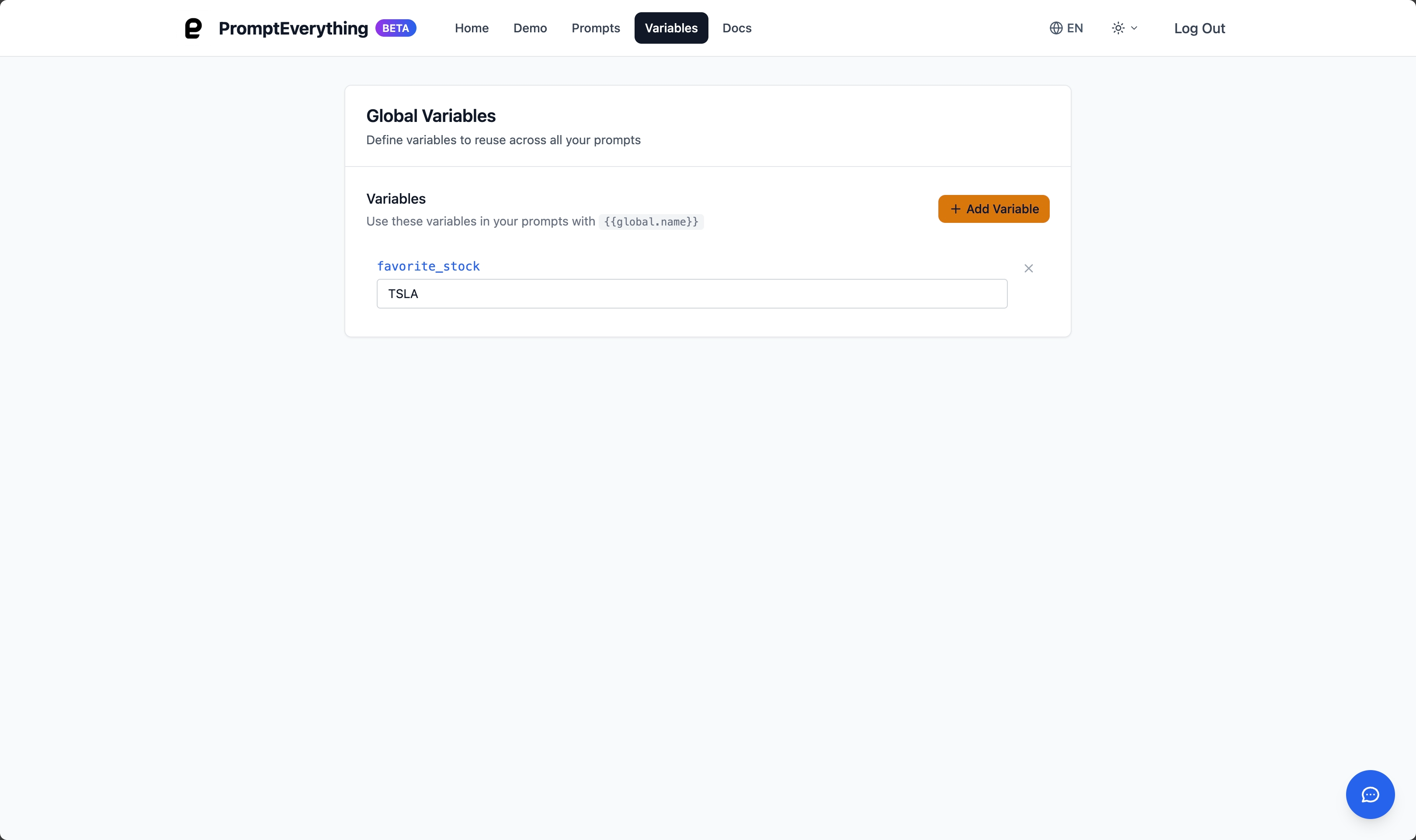
Step 5: Use Global Variables in Prompts
Now go to any prompt and use your global variables with the special syntax:
Analyze all the latest news regarding {{global.favorite_stock}} and provide:
1. Key market developments
2. Price movement analysis
3. Investment recommendation based on current trends
Focus on {{global.investment_strategy}} approach.
Key syntax: Always use {{global.variable_name}} - the global. prefix is essential!
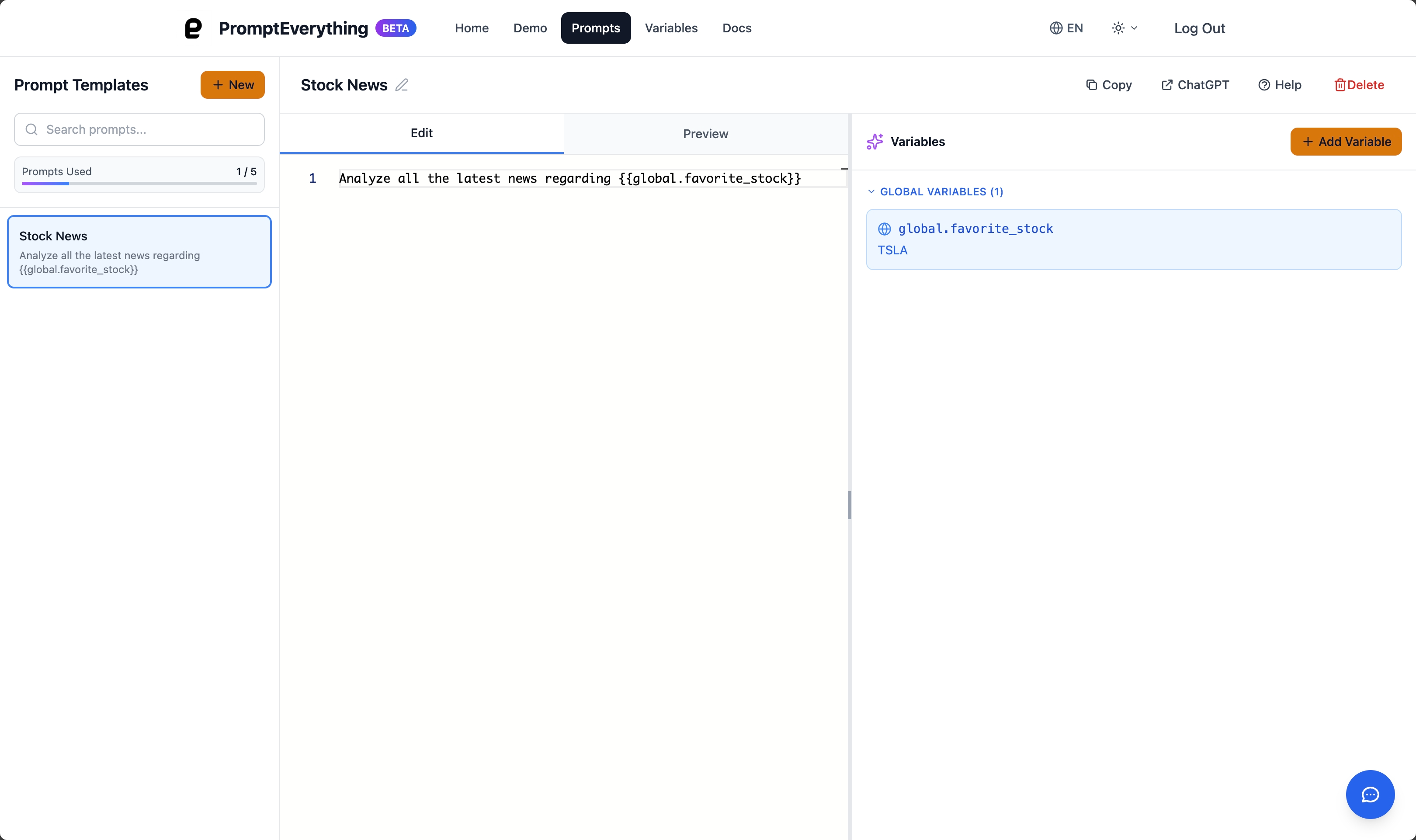
Step 6: See Variables in Action
When you preview or copy your prompt, global variables are automatically replaced:
Before (template):
Analyze all the latest news regarding {{global.favorite_stock}}...
After (with values):
Analyze all the latest news regarding TSLA...
The preview updates in real-time as you change global variable values!
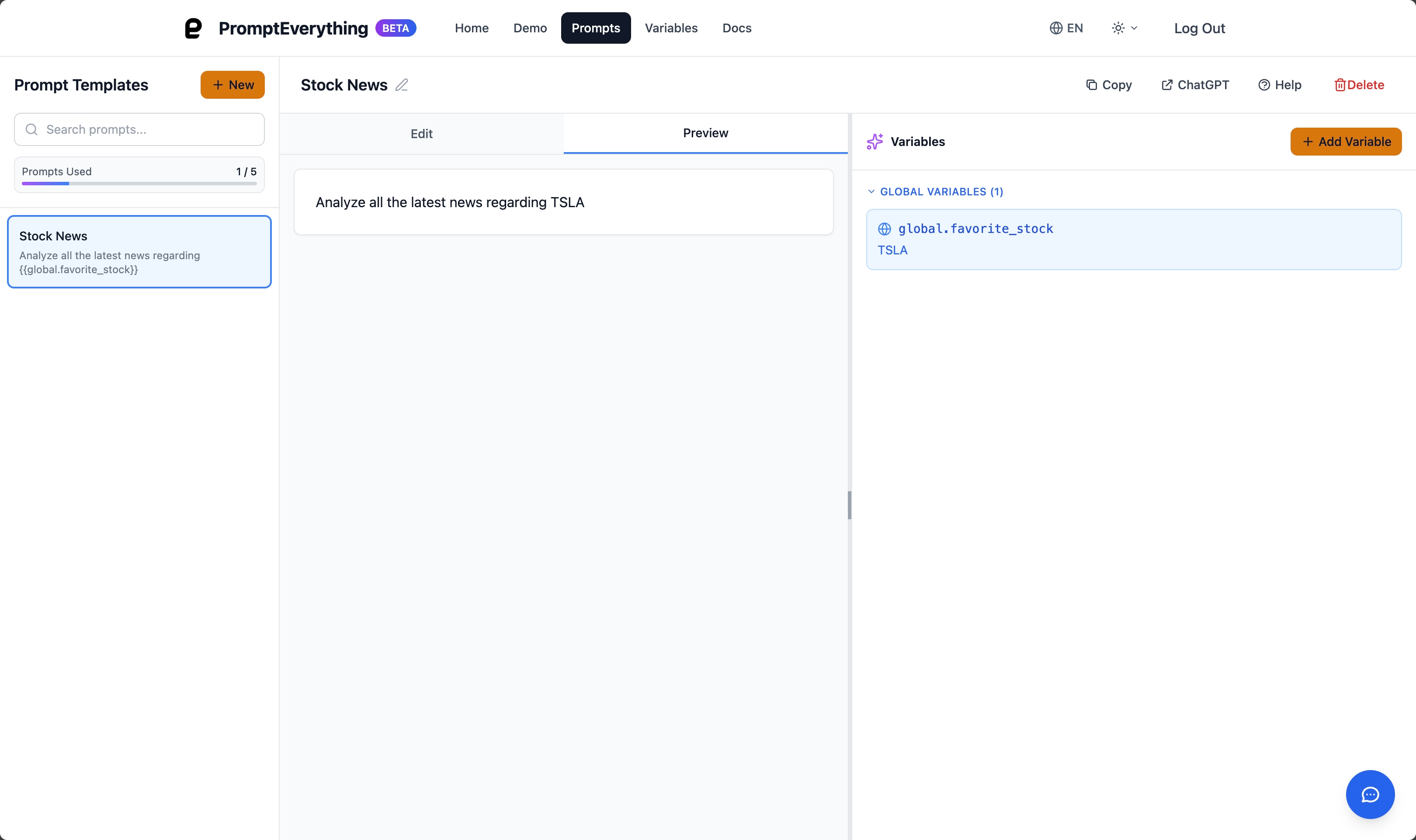
Step 7: Test Across Multiple Prompts
The real power of global variables is using them across different prompts. Create a second prompt to see this in action:
Prompt 1: "Stock News Analysis"
Analyze all the latest news regarding {{global.favorite_stock}}
Prompt 2: "Investment Summary"
Create a weekly investment summary for {{global.favorite_stock}} including:
- Price performance this week
- Volume analysis
- Technical indicators
- Recommendation for next week
Prompt 3: "Portfolio Review"
Review my portfolio allocation and assess if I should increase my position in {{global.favorite_stock}} based on recent performance.
Notice how all three prompts use the same {{global.favorite_stock}} variable. When you change the value from "TSLA" to "AAPL", all prompts update automatically - that's the magic of global variables!
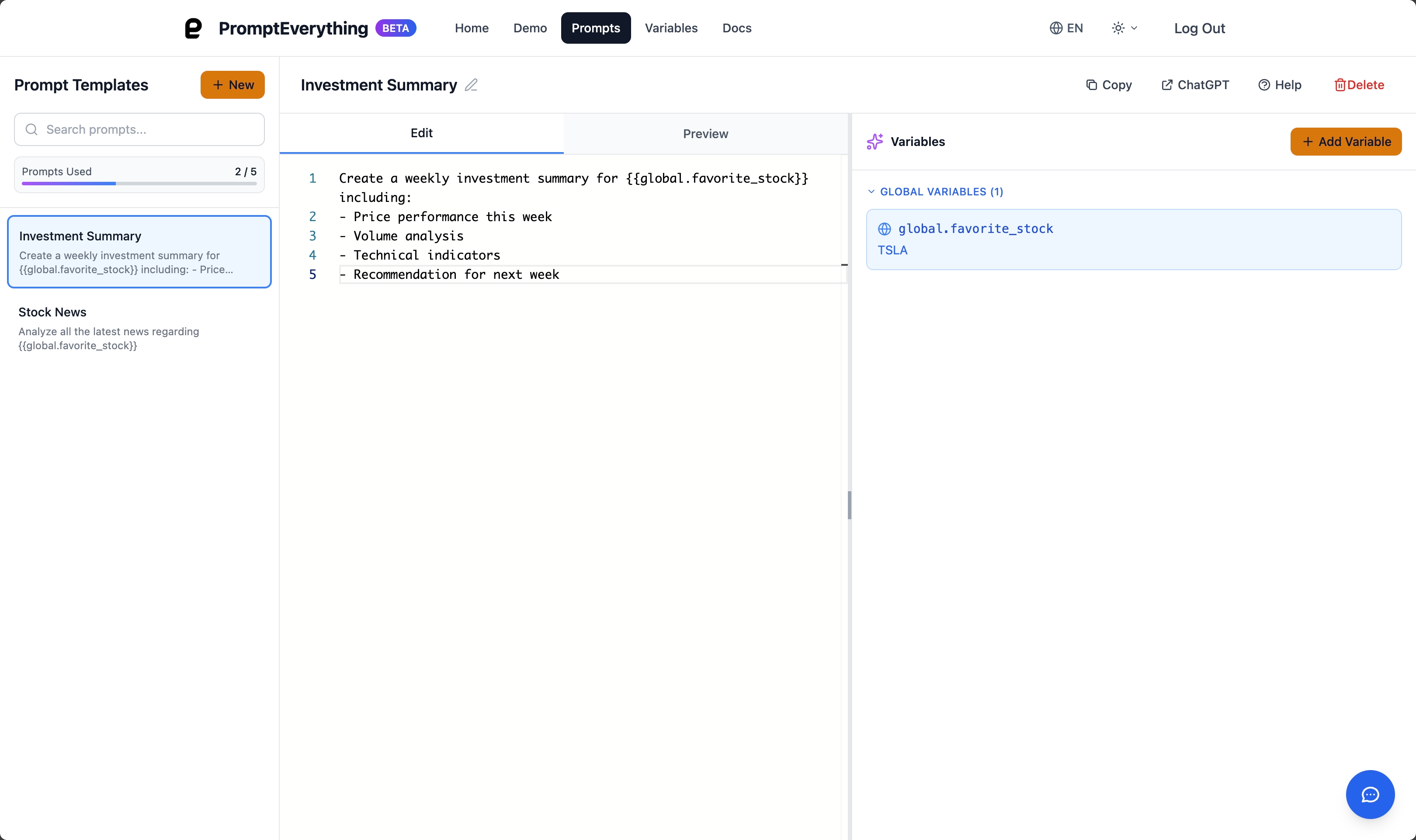
Quick Examples to Get Started
Stock Trader Set
favorite_stock: "TSLA"
investment_strategy: "growth investing"
risk_tolerance: "moderate to high"
portfolio_focus: "technology and renewable energy"
Financial Analyst Set
favorite_stock: "AAPL"
analysis_timeframe: "quarterly"
preferred_metrics: "P/E ratio, revenue growth, and market share"
investment_horizon: "long-term (5+ years)"
Day Trader Set
favorite_stock: "NVDA"
trading_strategy: "momentum trading"
position_size: "2-5% of portfolio per trade"
stop_loss: "strict 3% stop loss on all positions"
Pro Tips for Global Variables
✅ Best Practices
- Use descriptive names:
favorite_stocknotstock - Include context:
investment_strategyvs juststrategy - Keep values updated: Review when market focus changes
- Start with essentials: Favorite stock, strategy, risk tolerance first
❌ Common Mistakes
- Forgetting
global.prefix:{{favorite_stock}}won't work, use{{global.favorite_stock}} - Using spaces in names:
favorite stockshould befavorite_stock - Too many variables: Start with 3-5 core investment variables
- Inconsistent naming: Pick underscores or camelCase and stick with it
Global vs Regular Variables
| Feature | Global Variables | Regular Variables |
|---|---|---|
| Scope | Available in ALL prompts | Only in current prompt |
| Syntax | {{global.favorite_stock}} | {{ticker}} |
| Management | Variables page | Prompt sidebar |
| Best for | Personal/business info that you use often | Prompt-specific data |
Troubleshooting
Variable not showing up in preview?
- Check spelling:
{{global.favoritestock}}vs{{global.favorite_stock}} - Ensure you're using the
global.prefix - Verify the variable exists on the Variables page
Can't find Variables page?
- Look for "Variables" in main navigation
- Or go directly to
/variablesin your browser
Variable value too long?
- Global variables support multi-line content
- For very long content, consider breaking into multiple variables
What's Next?
Now that you've mastered global variables:
- Set up your investment variables (favorite stock, strategy, risk tolerance)
- Create multiple prompts that use the same global variables
- Test changing variable values to see all prompts update automatically
- Explore advanced features in the comprehensive variables documentation
Need more help? Check out our comprehensive variables documentation or contact support.
🎉 Congratulations! You've just learned the most powerful feature for creating consistent, professional prompts across your entire workflow.